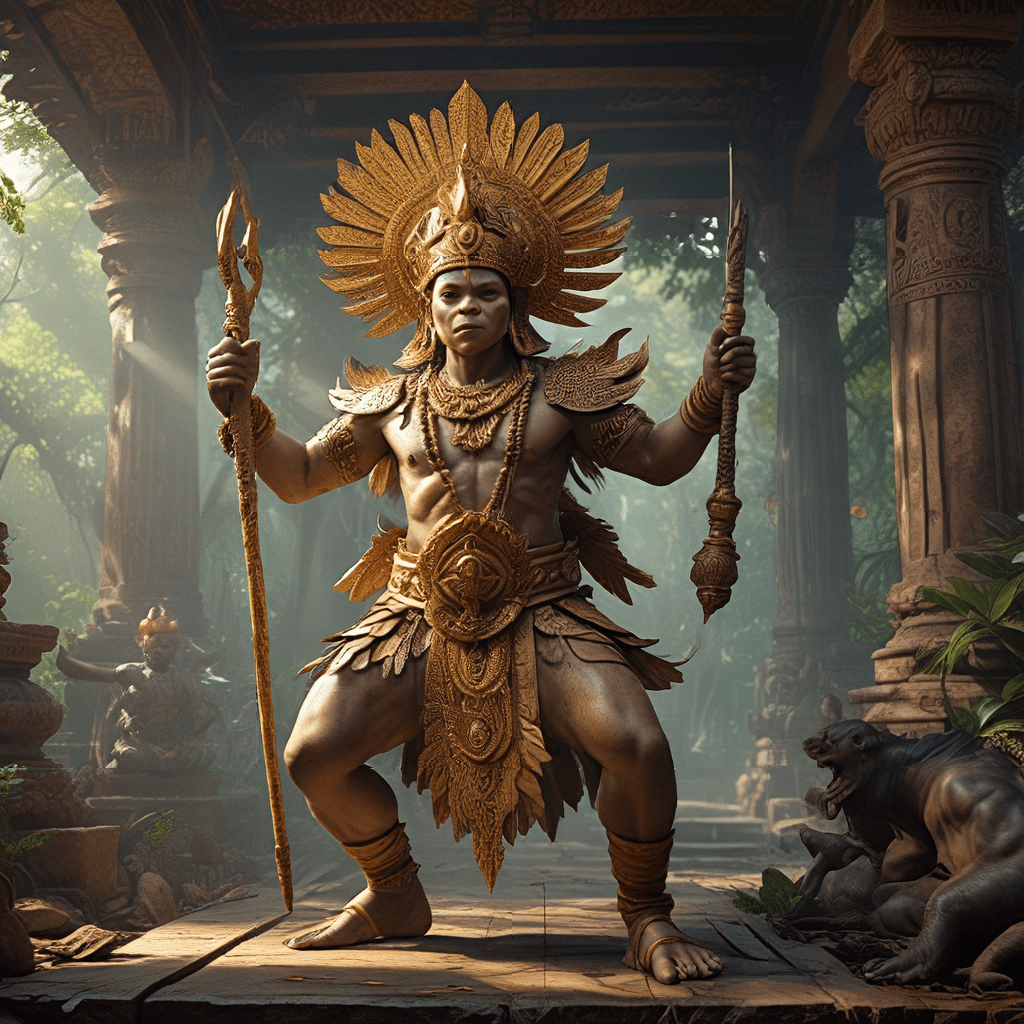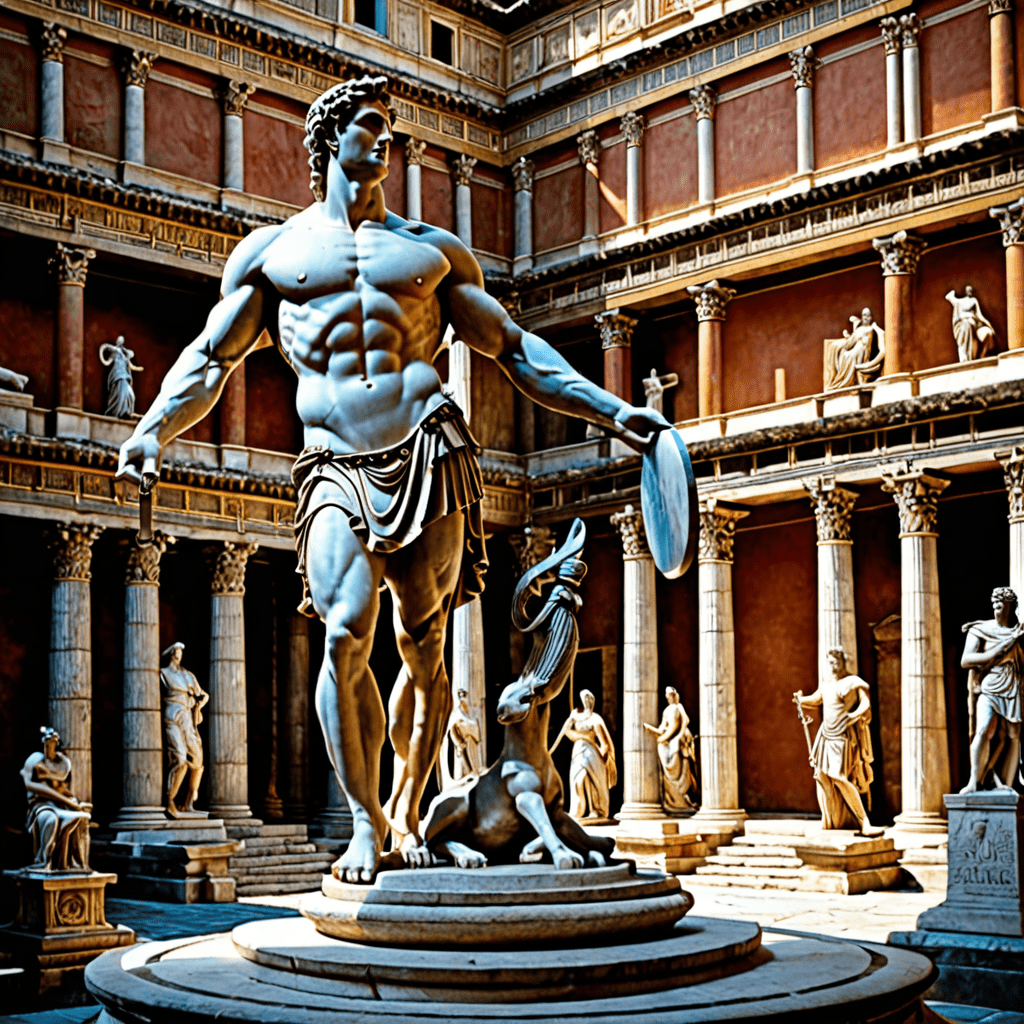The Golden Compass: Navigating Through Mythical Realms
I. Introduction
“The Golden Compass,” originally titled “Northern Lights” in the UK, is the first book in Philip Pullman’s acclaimed “His Dark Materials” trilogy. Since its publication in 1995, it has garnered significant attention and critical acclaim, establishing itself as a cornerstone of modern fantasy literature. The narrative invites readers into a richly imagined universe that explores complex themes of morality, knowledge, and existence.
Mythical realms have long captivated the human imagination, serving as a backdrop for exploring profound philosophical questions and human experiences. In “The Golden Compass,” Pullman deftly interweaves these mythical elements with a narrative that challenges conventional beliefs and encourages readers to embark on their own journeys of discovery.
This article aims to delve into the themes, characters, and intricate world-building of “The Golden Compass,” shedding light on the significance of its narrative and its impact on the literary landscape.
II. The Author and the Creation of the World
A. Philip Pullman: Background and influences
Philip Pullman, born in 1946 in Norwich, England, is a celebrated author known for his contributions to children’s and young adult literature. His literary career began with various short stories and novels, but it was “His Dark Materials” that catapulted him to international fame. Pullman’s works often reflect his fascination with mythology, philosophy, and the questions surrounding belief and knowledge.
B. The inspiration behind the universe of “His Dark Materials”
The universe of “His Dark Materials” draws inspiration from various sources, including classical mythology, philosophy, and scientific theories. Pullman’s experiences and education, particularly his exposure to literature and his interest in the works of John Milton and William Blake, significantly influenced the creation of this complex world. The blending of fantasy with elements of reality creates a narrative that resonates on multiple levels.
C. The role of mythology in shaping the narrative
Mythology serves as a crucial underpinning in “The Golden Compass,” providing a framework for understanding the characters’ journeys and the overarching conflict. The incorporation of mythological creatures and themes enriches the narrative, allowing readers to engage with the text on a deeper, more philosophical level.
III. The Structure of the Multiverse
A. Overview of the different worlds within the narrative
The narrative of “The Golden Compass” unfolds across multiple worlds, each with its own unique characteristics and inhabitants. Key realms include:
- Lyra’s World: A parallel universe where humans are accompanied by animal companions called daemons.
- The Arctic: A harsh, icy landscape that plays a crucial role in the plot.
- Our World: The universe that closely mirrors reality as we know it.
B. The concept of parallel universes and their implications
The concept of parallel universes is central to the story, suggesting that multiple realities coexist, each influenced by the choices made in others. This idea invites readers to reflect on the nature of existence and the interconnectedness of all living beings.
C. The significance of the golden compass (alethiometer) in navigating these realms
The alethiometer, or golden compass, is a powerful tool that plays a crucial role in the narrative. It allows its user to discern truth and navigate the complexities of the multiverse. This mystical device symbolizes the quest for knowledge and understanding, serving as a guiding force for the protagonists.
IV. Key Themes Explored
A. The quest for knowledge and truth
At the heart of “The Golden Compass” lies the quest for knowledge and truth. Lyra’s journey is motivated by her desire to uncover the mysteries surrounding her world and the larger universe. This theme resonates with readers, inviting them to consider the importance of seeking knowledge in their own lives.
B. The nature of consciousness and the soul (daemons)
The concept of daemons—animal manifestations of a person’s soul—raises profound questions about consciousness and identity. The relationship between humans and their daemons serves as a metaphor for the internal struggles and complexities of the human experience.
C. The conflict between authority and free will
The series explores the tension between authoritarian control and individual freedom. Characters grapple with the implications of their choices, highlighting the importance of autonomy in the face of oppressive forces.
V. Major Characters and Their Journeys
A. Lyra Belacqua: The heroine’s journey and character development
Lyra Belacqua is a compelling protagonist whose journey from innocence to maturity is central to the narrative. Initially portrayed as a curious and headstrong girl, her experiences throughout the story force her to confront difficult truths about herself and her world. Lyra’s character development is marked by her growing understanding of moral complexities and her evolving sense of responsibility.
B. Will Parry: His role as a companion and his own evolution
Will Parry, introduced later in the series, serves as a crucial companion to Lyra. His own journey of self-discovery parallels Lyra’s, and together they navigate the challenges of their intertwined destinies. Will’s evolution from a hesitant boy to a determined young man underscores the theme of personal growth.
C. Supporting characters: Their contributions to the narrative and themes
The supporting characters in “The Golden Compass” enhance the narrative by embodying various themes and moral dilemmas. Characters like Lord Asriel, Mrs. Coulter, and Lee Scoresby each contribute to the rich tapestry of the story, offering unique perspectives on the central conflicts.
VI. The Role of Mythology and Folklore
A. Examination of the mythological elements within the story
Mythological elements permeate “The Golden Compass,” from the presence of daemons to the exploration of concepts like Dust. Pullman draws on a diverse array of myths, infusing the narrative with depth and resonance.
B. How folklore influences character and plot development
Folklore plays a significant role in shaping character arcs and plot progression. Traditional tales and archetypes inform the reader’s understanding of characters and their motivations, creating a rich intertextual dialogue.
C. The significance of creatures and entities from various mythologies
Creatures and entities drawn from global mythologies contribute to the world-building of “The Golden Compass.” From armored bears to witches, these beings enrich the narrative and serve as symbols for larger themes.
VII. Symbolism and Motifs
A. The alethiometer: Symbolism and its narrative function
The alethiometer is a potent symbol of truth and knowledge, representing the quest for understanding in a complex world. Its ability to reveal deeper truths challenges characters to confront their own beliefs and motivations.
B. The significance of the various creatures and daemons
Each creature and daemon in “The Golden Compass” carries symbolic weight, reflecting the inner lives of their human counterparts. These relationships serve as a lens through which readers can explore themes of identity and connection.
C. Recurring motifs and their meanings throughout the series
Recurring motifs, such as the imagery of the North and the concept of Dust, weave through the narrative, reinforcing key themes and enhancing the reader’s engagement with the text.
VIII. The Adaptations: Film and Television
A. Overview of the 2007 film adaptation and its reception
The 2007 film adaptation of “The Golden Compass,” directed by Chris Weitz, aimed to bring Pullman’s world to the big screen. While visually stunning, the film faced criticism for its simplification of complex themes and characters.
B. Analysis of the recent television series and its interpretation
The recent HBO/BBC television adaptation has garnered praise for its fidelity to the source material and its exploration of deeper themes. The series enriches the narrative by allowing for more character development and thematic exploration.
C. Comparison of adaptations with the original material
Comparing the adaptations reveals significant differences in tone, character portrayal, and thematic depth. While the film aimed for a broader appeal, the television series delves deeper into the complexities of Pullman’s narrative, reflecting a more nuanced understanding of the source material.
IX. The Impact of “The Golden Compass” on Fantasy Literature
A. Influence on contemporary fantasy authors and works
“The Golden Compass” has left an indelible mark on contemporary fantasy literature. Its innovative narrative structure and philosophical themes have inspired a new generation of authors to push the boundaries of the genre.
B. The reception of the series within the literary community
The series has been both celebrated and critiqued within the literary community, prompting discussions about its themes and implications. It has won numerous



